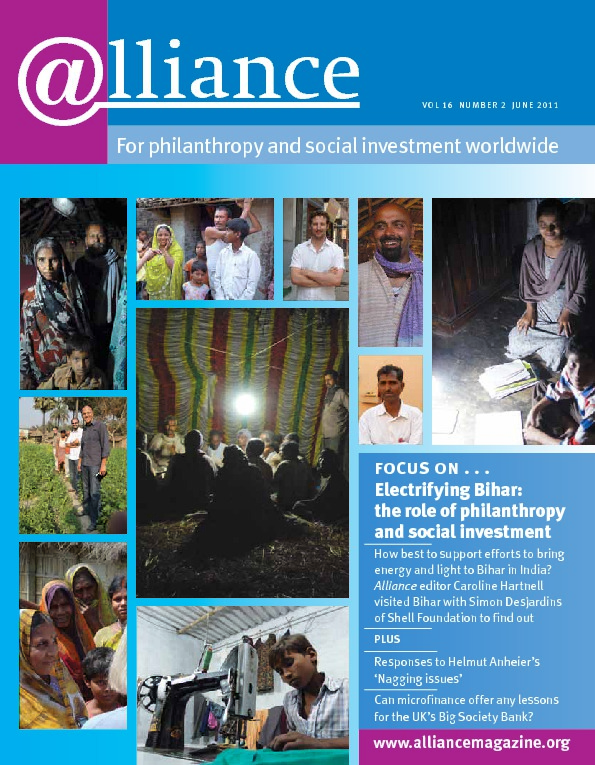I’m grateful for Jo Andrews’ very thoughtful opinion piece (‘Defining social justice philanthropy: spearing the sausage?’, Alliance March 2011) in which she challenges the notion that human rights funding is a subset of social justice funding. She argues that ‘what distinguishes the two [are] the different roots from which they spring: a primary regard for the individual or a primary regard for communities. Issues such as the torture or imprisonment of an individual have little to do with social justice and everything to do with human rights.’ I think this is essentially correct. The word ‘social’ in the term ‘social justice’ draws the listener’s mind to a particular context, which clashes with the notion that human rights should be universally respected because of our shared humanity.
Many of us who self-identify as social justice funders – myself included – have made an uneasy truce with the term ‘social justice philanthropy’. Why not drop the word ‘social’ and simply call ourselves ‘justice funders’ or perhaps ‘funders for justice’? (In the US context, this would cause some confusion, a ‘justice funder’ being a grantmaker who supports such things as legal services, alternatives to incarceration and prisoner re-entry programmes.)
Is the strongest argument for both social justice and human rights a shared sense of justice, where we interpret ‘justice’ as a kind of fairness? Are we persuaded to respect the human rights of others because failing to do so would simply be unjust? The ‘justice’ rubric is a very powerful one – some views of environmentalism invoke the rights of future generations, and the idea of a just war is sometimes used to legitimize aggression between states. The idea of justice as fairness appears to have an almost universal appeal. In short, rather than human rights being a subset of social justice, can we see both as parts of a larger idea of justice?
Albert Ruesga
President and CEO, Greater New Orleans Foundation






Comments (0)